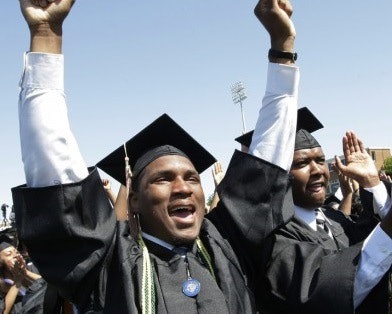
In “Closing the Race Gap: Alleviating Young African American Unemployment Through Education,” a research report that examines the link between race and education, researchers with the Washington-based Young Invincibles advocacy organization have found that, while young Black adults at all education levels experience higher unemployment rates than others, such employment gaps diminish considerably as Black educational attainment increases.
In a striking example cited in the report, young African-American adults need to have earned an associate’s degree to have the same job prospects as young White adults who have only earned a high school diploma. In addition, an African-American male needs some college credit to have a similar probability of employment as a White male high school dropout, the report says.
“We found that young African-Americans have a lower probability [than others] of having a job at every level of education. In fact, young African-Americans need two more levels of education to have the same chance at landing a job as their White peers,” said Young Invincibles research and policy manager Tom Allison this past Thursday during a news media conference call that included U.S. Senator Mary Landrieu, D-La.
Landrieu participated in the news media call to talk about the Creating Higher Education Affordability Necessary to Compete Economically (CHANCE) Act that she has introduced in the U.S. Senate. The legislation is expected to help close the employment gap between White and African-American young adults by making college more affordable and accessible. If enacted, the CHANCE Act would restore the original purchasing power of the Pell Grant annual award by increasing it to $8,900 from $5,730.
Citing the comparison of African-Americans holding associate’s degrees and White high school graduates, Allison told reporters the additional schooling of earning an “associate’s degree can cost upward of $20,000 and take a commitment of two years” helps illustrate the formidable challenge confronting African-Americans in the U.S. economy.
“So, you think about that investment [for an African-American] just to have the same chance of having a job as a White high school graduate. … This is really statistical evidence that African-Americans really do need to work twice as hard to compete in this country,” he said.














